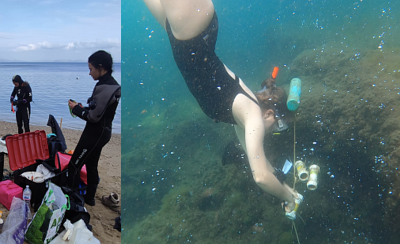
The Research Group in Ecotoxicology and Biomonitoring of Emerging Contaminants and Nanomaterials (EcoBiom Lab) originates from the ecotoxicology school founded more than 40 years ago by ecologists of the former Department of Environmental Sciences of the University of Siena.
From the tradition of this school, the EcoBiom group has inherited and developed over the years methodologies and approaches for assessing the impact of chemical pollution on natural ecosystems, and in the last 20 years also on engineered nanomaterials and nanoplastics.

Currently, EcoBiom's research activity is structured along the following lines:
- biomonitoring of environmental quality through the use of animal and plant bioindicators in terrestrial, riverine, and marine environments, including remote areas such as Antarctica;
- ecological risk assessment through the application of integrated ecological approaches of chemical, ecological, and ecotoxicological analyses using ecotoxicological assays and biomarkers in sentinel and non-target species.
- Adaptation mechanisms of marine species to climate change, such as ocean acidification, through gene expression analysis, with particular attention to ABC transporters;
- Origin and presence of microfibers and micro- and nanoplastics in remote ecosystems, such as Antarctica, using spectroscopic and imaging techniques.

The most innovative research lines concern the ecotoxicology of emerging contaminants, including pharmaceuticals and personal care products, nanomaterials and nanoplastics and rare earth elements. The research ranges from the application of standardized ecotoxicological bioassays and the development of new biological endpoints on larval, juvenile, and adult stages.

The environmental safety assessment of molecules and (nano)materials, including nanoplastics (ecosafety), is associated with the study of interactions, including bio-nano-interactions, with mono- and multicellular organisms from the molecular level up to the cell and the organism, using omics approaches including adverse outcome pathways and system biology.

Over the years, EcoBiomLab has hosted numerous foreign researchers, PhD students, and visiting professors, increasing its knowledge through scientific laboratory and field experiences and developing a strong spirit of community and sharing on increasingly emerging issues related to the impact of contamination in temperate and polar areas. The studies conducted to date have developed methods and have been able to benefit from increasingly updated tools in ecological risk assessment of anthropogenic pollution.